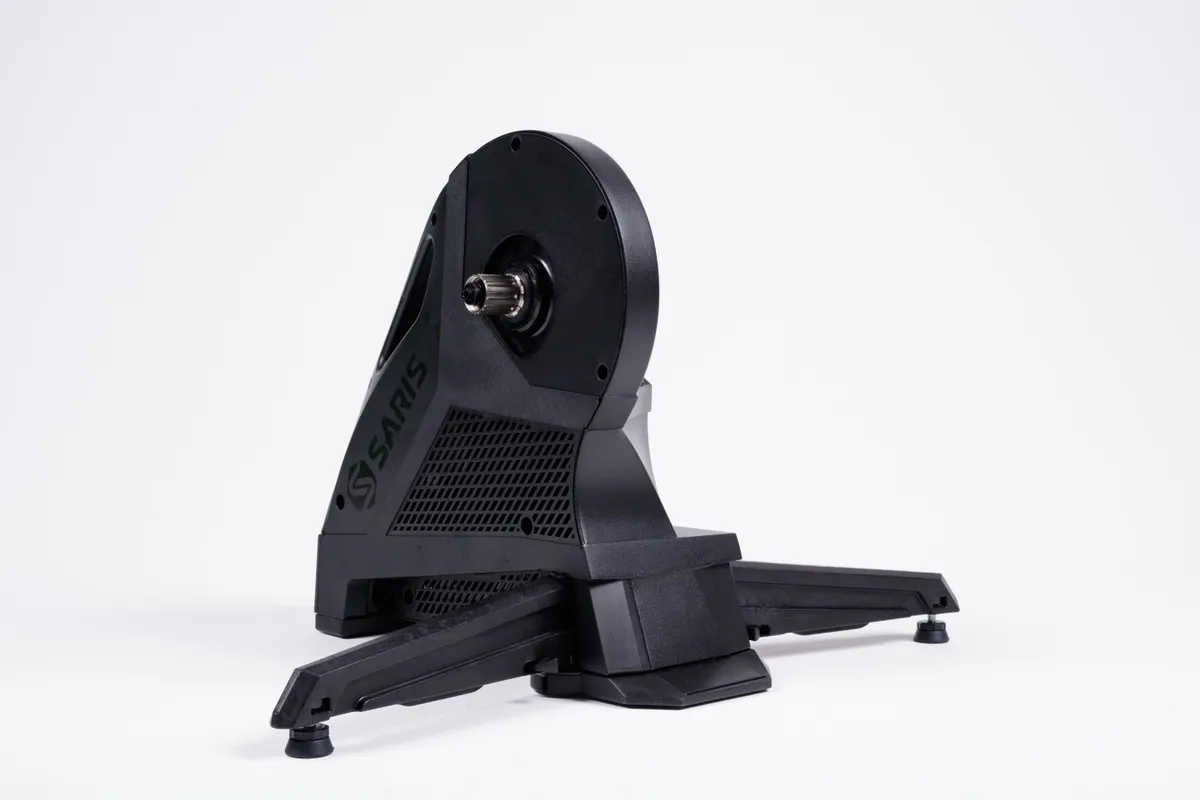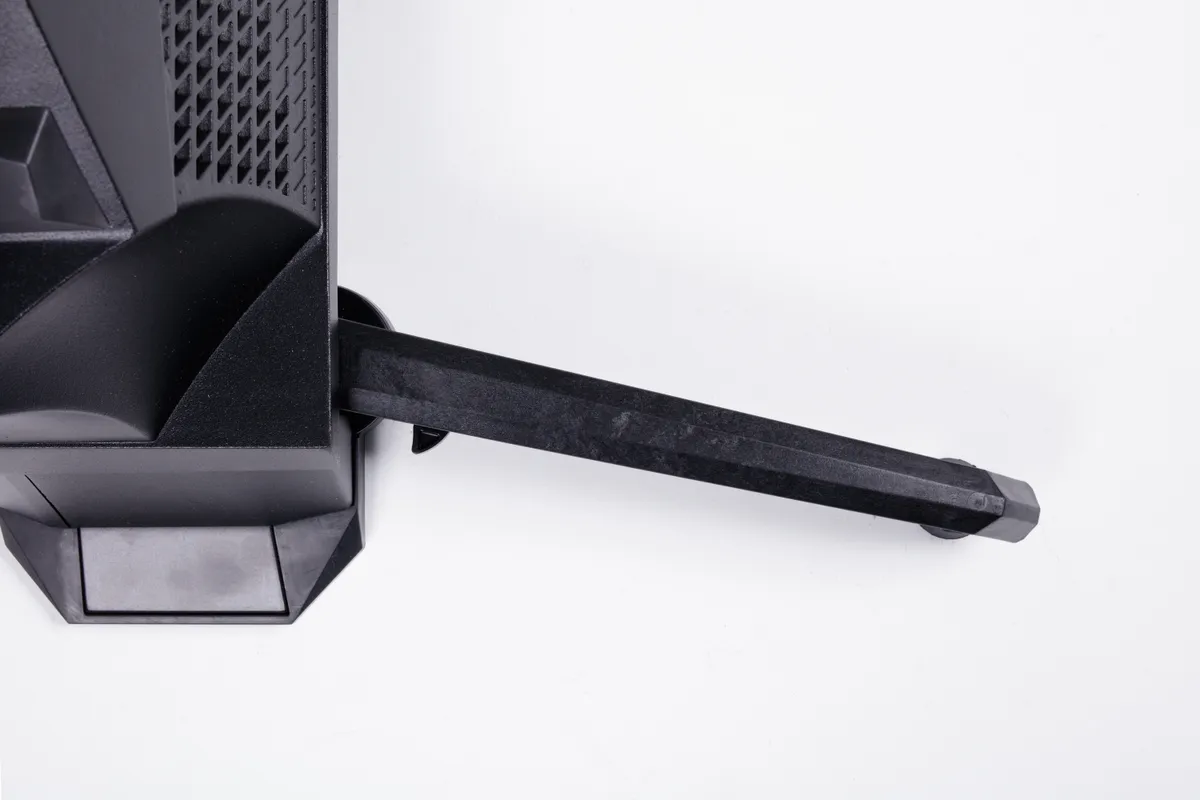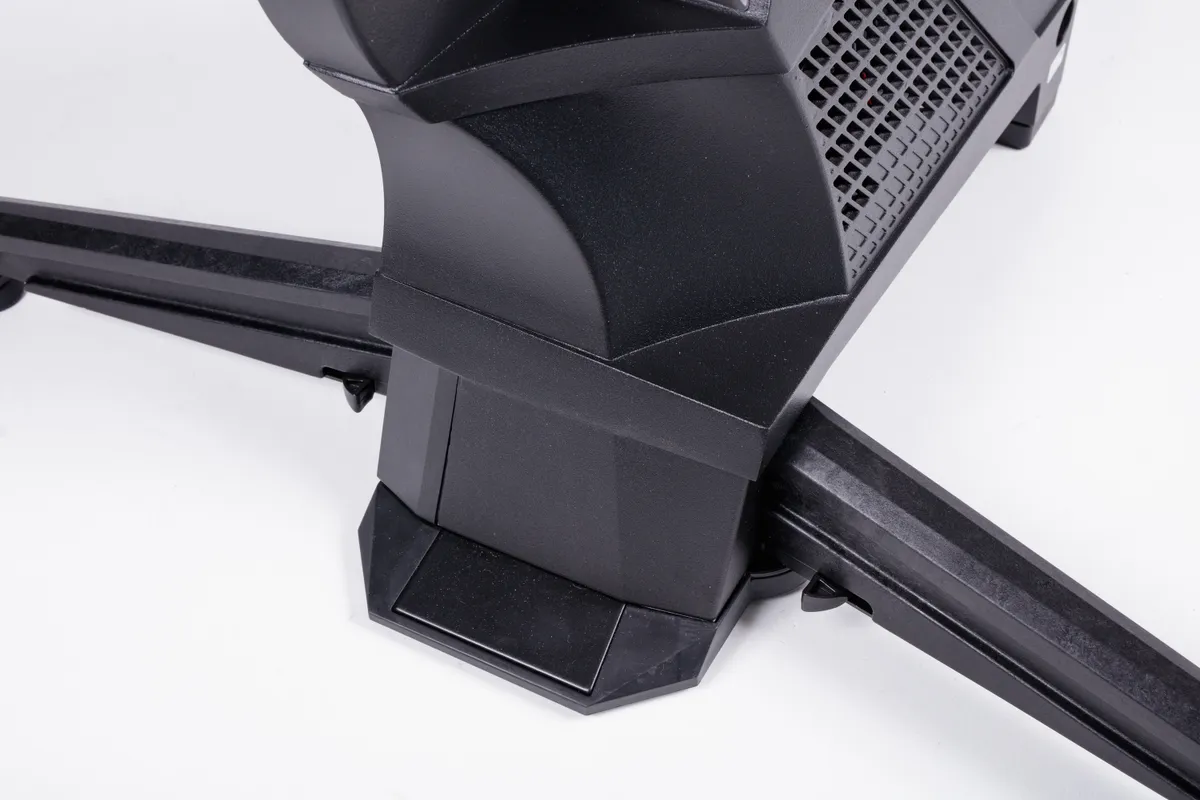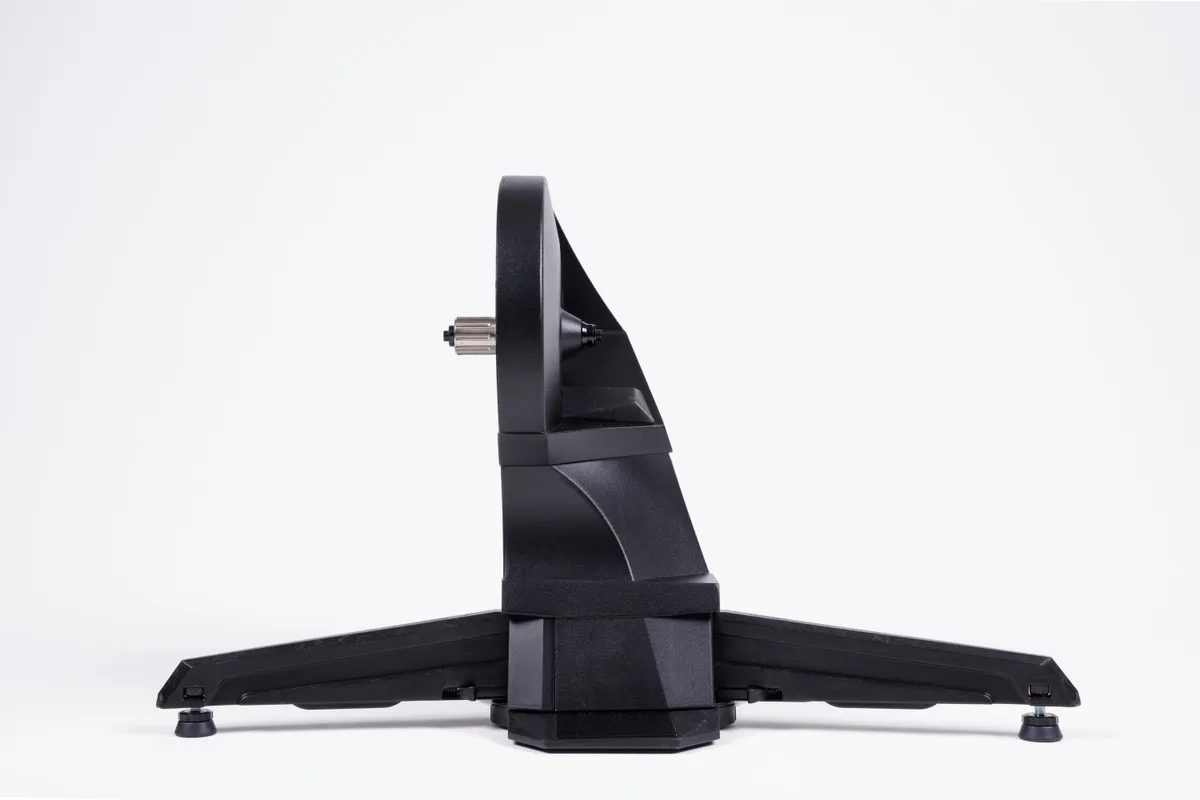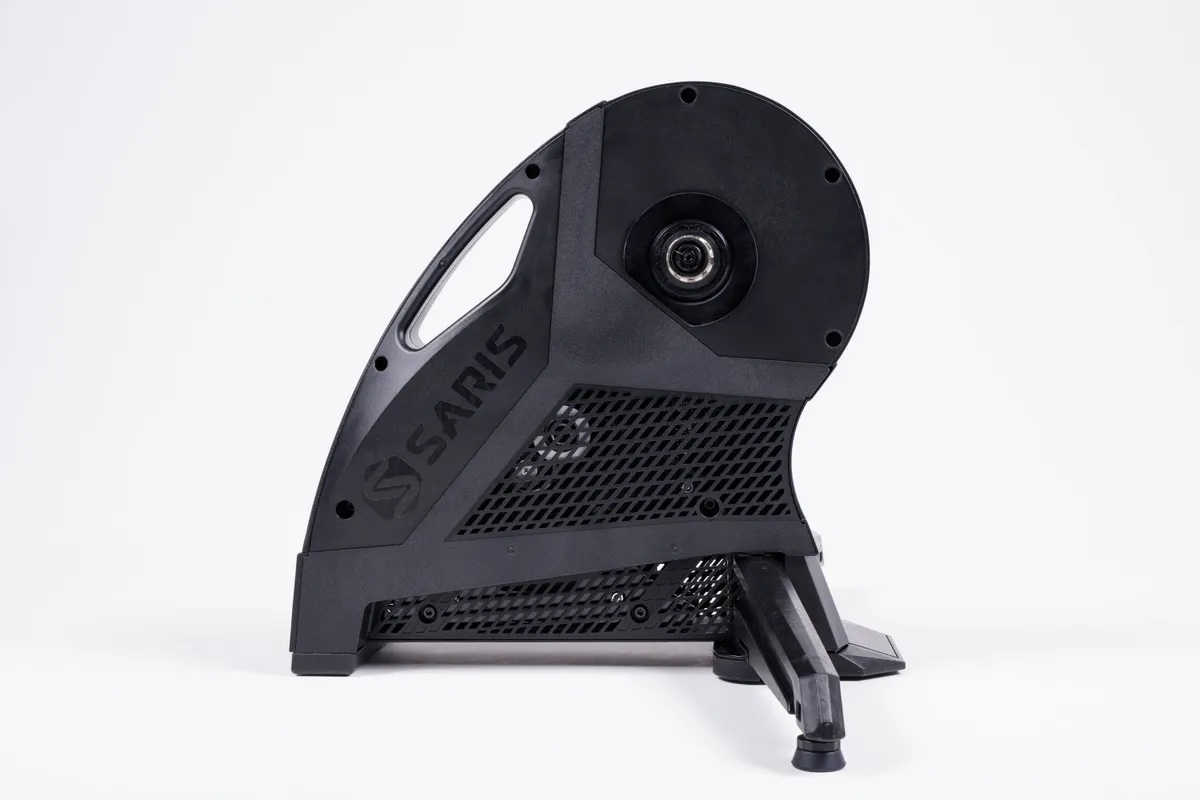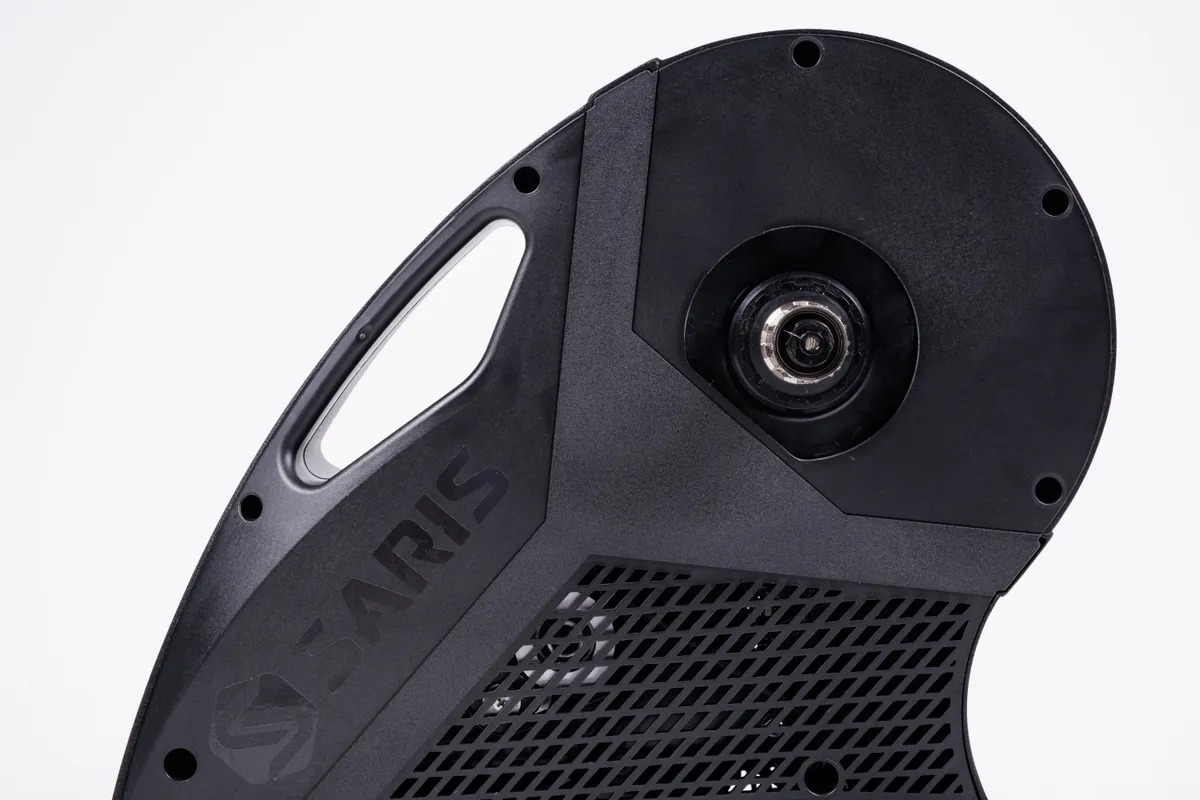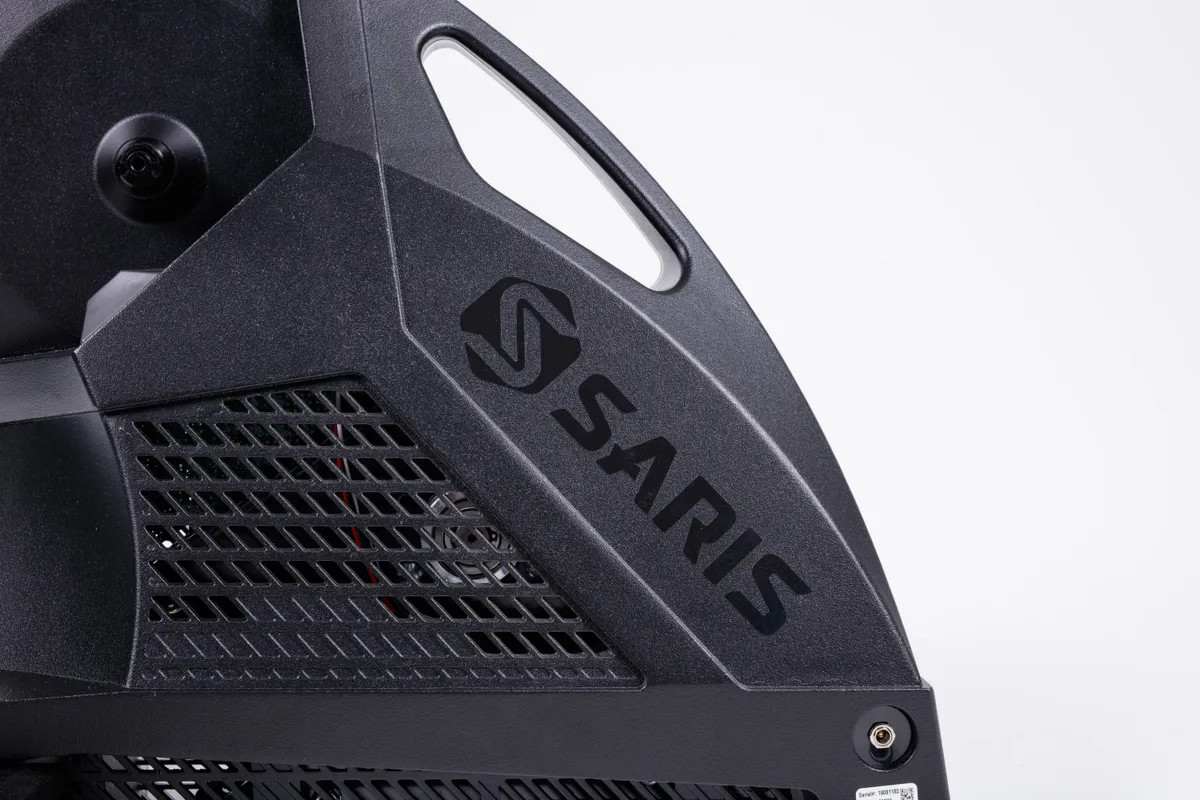The new H3 is Saris’s top-end interactive trainer and builds on from its popular H2. In particular, noise has been one of the priorities for this new unit, which has been tackled with a new belt set-up. The H3 also features a new drive mechanism and cooling system over its predecessor.
Price wise, the H3 is extremely competitive with other top-end trainers, undercutting all its nearest rivals by a considerable amount.
Pulling the H3 out of the box you soon realise it’s a hefty beast, weighing 21.3kg. This is a double-edged sword because the weight helps to provide stability but makes it harder to move around. Fortunately, Saris has moulded a handle into the body of the casing to make things easier.
The H3 is designed to work with 130mm and 135mm quick-release axles as well as 142cm and 148cm thru-axles. It’s good to see all the necessary adaptors for this are in the box, but there’s no skewer in the box or cassette, so you'll need to add this into your budget.
The freehub works with all the big players, which is great news, including Shimano, SRAM and Campagnolo 8- to 11-speed bikes. XD and XDR freehubs are available but these at an additional cost.
Saris H3 set up
Minimal set-up is required, it’s simply a case of pulling out the stability legs. I like that Saris has also included a front wheel block that sits neatly between the legs. There’s also a brake block for disc brake bikes to avoid any issues of compressing the brake while training.
Once opened out, the H3 has a footprint of 50cm long x 77cm wide x 50cm tall, and the wide legs act as good stabilisers. With the legs folded in for storage, this reduces the width to 24cm, which is pretty impressive.
Connectivity is good – as you’d expect from a trainer at this price – and offers easy integration via ANT+ FE-C and Bluetooth FTMS. If you’re using a software package, such as TrainerRoad or Zwift, everything just works, making life easy even for the least technically minded.
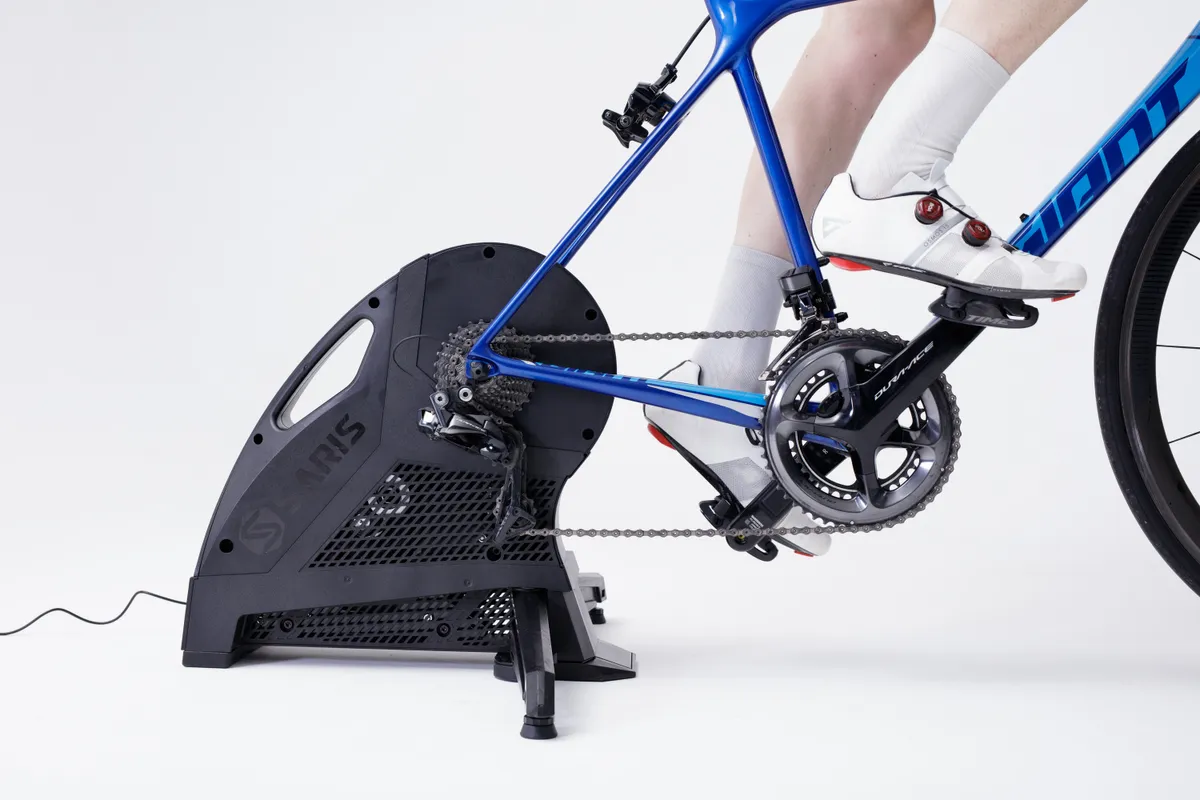
Speed, cadence and power measurements are all built in, so there’s no need for any external sensors, which is another bonus.
The H3 comes with something called Headless mode, which allows you to ride with a progressive resistance power curve with the power plugged in but not paired with any apps.
Whole in Simulation mode, gradient inclines can be set and will work up to 20 per cent, which should be more than enough for most.
As you might expect, you can run things in ERG mode too, which controls the level of resistance automatically. ERG mode overrides course changes and gradients and instead sets the resistance based on the wattage specified in your chosen workout.
In terms of firmware, the H3 has over-the-air updates, keeping things simple.
Saris H3 impressions
The H3 feels stable from the first pedal stroke, with the wide legs and the unit’s weight really helping here. The feet on the end of the legs are adjustable too for uneven surfaces.
The ride feel is good and up there with the best direct smart trainers. It’s the flywheel that contributes to a smart trainer’s ride feel and this one’s a hefty 9kg, which delivers plenty of resistance. The ride feel is similar to the Wahoo Kickr.
If you want an even more realistic on-the-road ride feel, Saris has recently launched its MP1 motion platform. With a bike and unit mounted on, this offers side-to-side and forwards and backwards motion. The two can be purchased as a bundle for £1,600 saving £248.
I like the way the H3 pedals and the changes in resistance and power are smooth and reliable. Saris has sorted the power spikes of the H2 via a firmware update, and the results are certainly impressive on this unit. It works especially well with terrain changes on software packages such as Zwift.
Power accuracy is also impressive and was very close to the Garmin Vectors I was using for comparison, ranging from two per cent to within one per cent.
The noise levels, or lack of them, are also impressive. It’s far quieter than the H2, and at 20mph I measured the levels on an iPhone app at 61dB. Like so many of the higher priced trainers, it’s the bike’s transmission that makes the most noise.
Saris H3 overall
The H3 is a big improvement on the H2; it feels good to ride, is easy to set-up and use, offers accurate data feedback and best of all noise levels have been reduced. This all makes the Saris H3 very competitive with other top-end trainers on the market.
It might not have the road surface sensations of the Tacx Neo 2, but the H3 comes in at a great price, which I’m sure will appeal to many.
Product
| Brand | Saris |
| Price | £850.00, $1000.00 |
| Weight | 21.30kg |
Features
| Mount | direct_drive |
| Folding legs | yes |
| Trainer type | smart_trainer |
| Resistance type | electromagnetic |
| Connectivity | antPlus |
| Connectivity | antPlus_fe_c |
| Connectivity | bluetooth |
| Noise | 59.0000 |
| Noise | DECIBEL |
| Max power | 2000.0000 |
| Max power | WATT |
| Flywheel weight | 9.0000 |
| Flywheel weight | KILOGRAM |
| Max grade (degrees) | 20.0000 |
| Dimensions | 50cm x 77cm (Footprint) |
